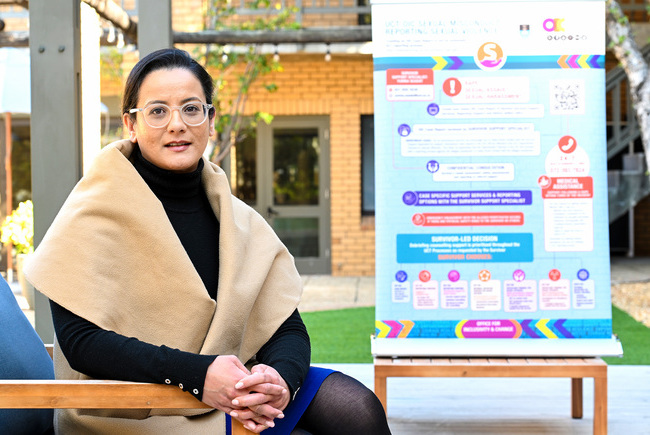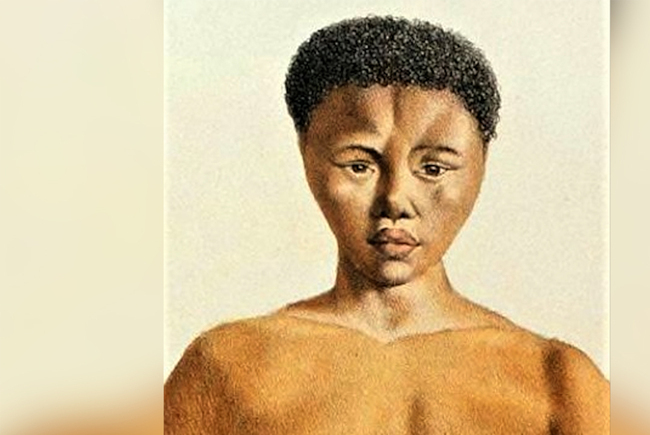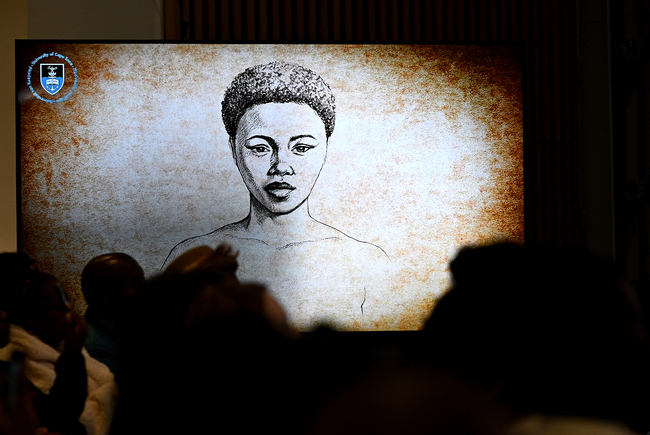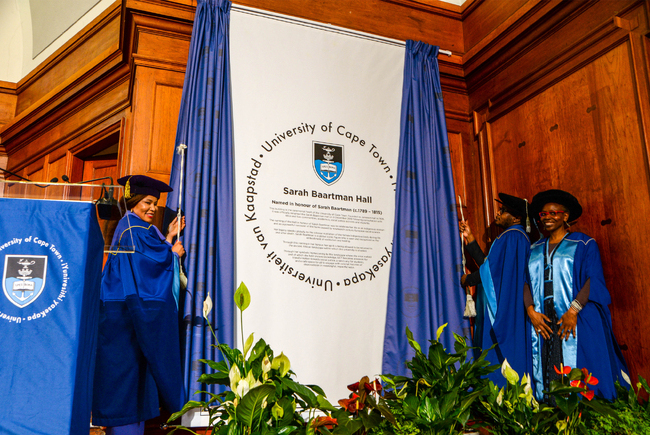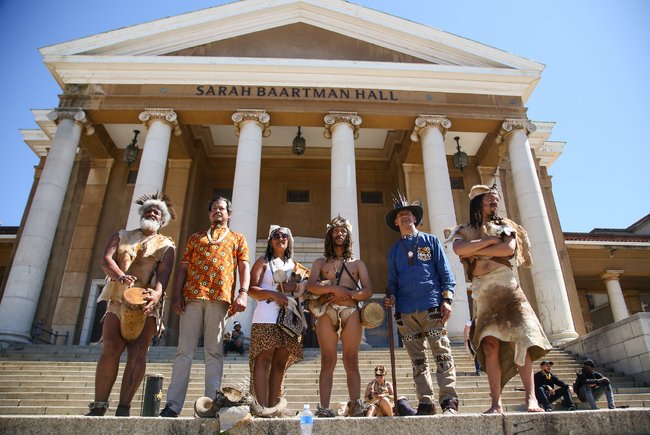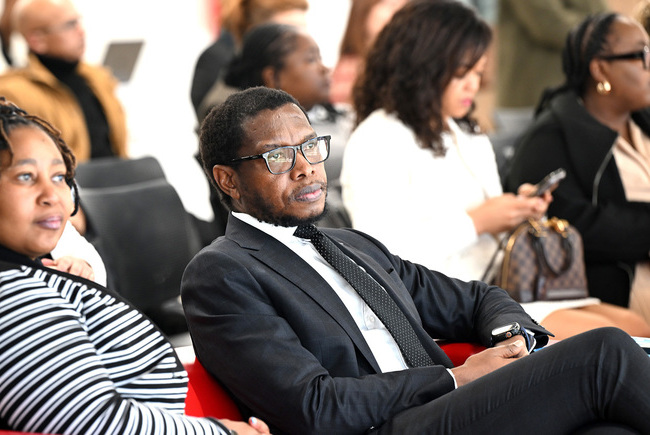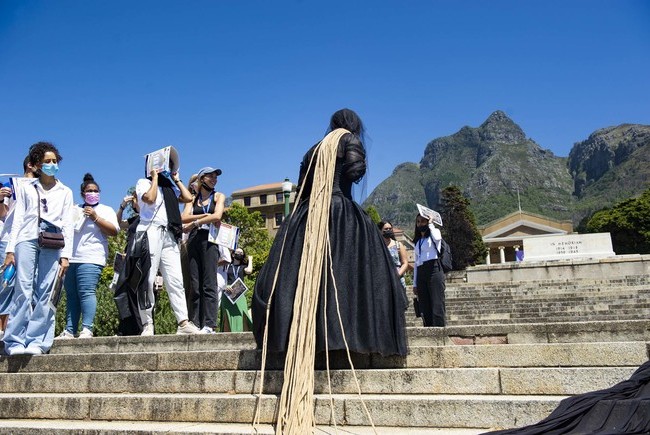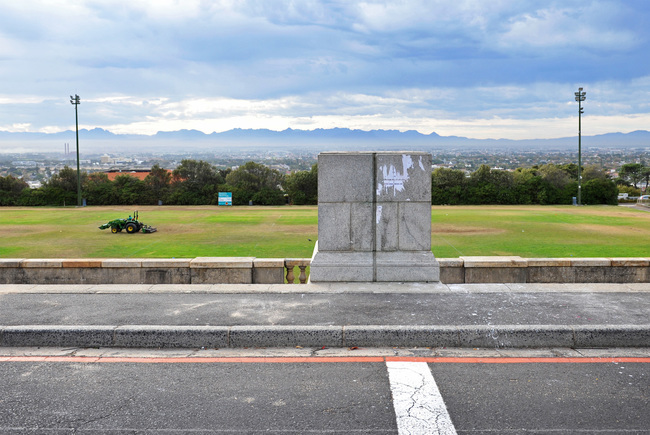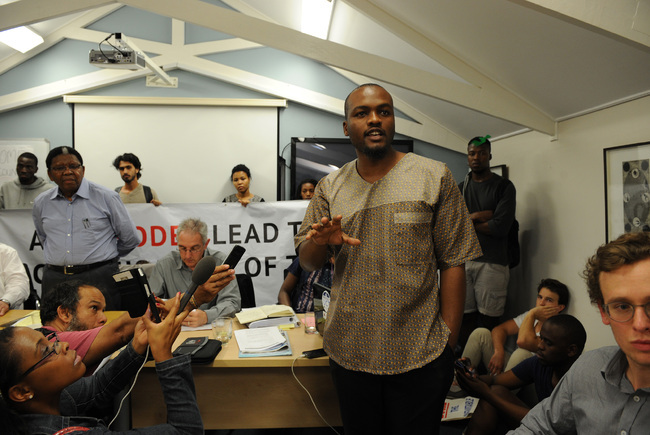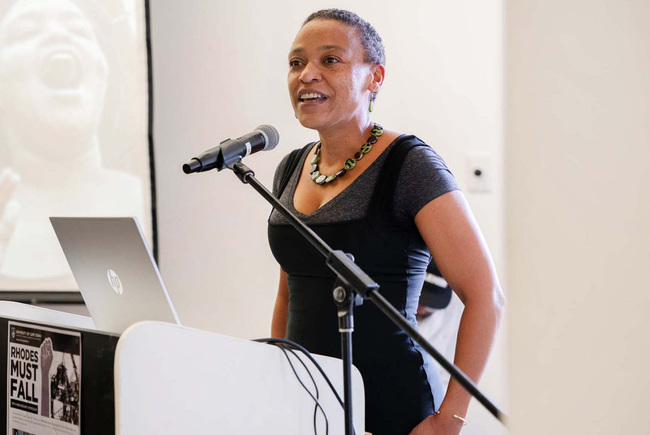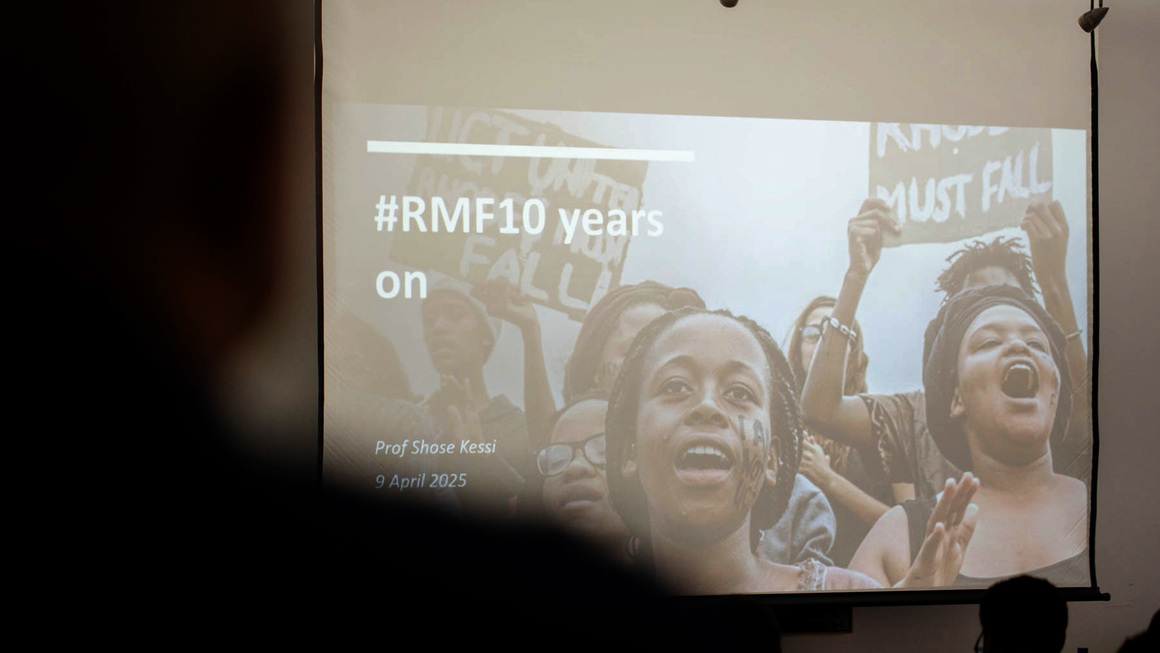Reflecting on #RhodesMustFall: Ten years on
16 April 2025 | Video Production Team Nomfundo Xolo, Carbon Visuals and Ruairi Abrahams. Archive footage Wandile Kasibe and Azania Rizing Productions. Photo Robyn Walker.On 9 April 2025, the University of Cape Town marked the 10th anniversary of the Rhodes Must Fall (RMF) student movement with a commemorative symposium at the Centre for African Studies Gallery. Ten years ago, to the day, the statue of Cecil John Rhodes was removed from upper campus after weeks of unrelenting protest and debate, igniting a wave of decolonial thinking that reshaped not only UCT, but global conversations on institutional racism, transformation and the place of African thought in higher education.
Organised in partnership with the Office of the Vice-Chancellor and the Faculty of Humanities, the symposium brought together RMF activists, UCT student leaders and academics as well as civil society to reflect on the movement’s legacy. The gathering honoured the impact of Fallists while re-engaging urgent questions of curriculum, memory, and institutional power. It also included a screening of short documentaries, panel discussions and a performance by Cape Town band, Kujenga.
 This work is licensed under a Creative Commons Attribution-NoDerivatives 4.0 International License.
This work is licensed under a Creative Commons Attribution-NoDerivatives 4.0 International License.
Please view the republishing articles page for more information.
Ten Years of Transformation at UCT

The University of Cape Town’s (UCT) Vision 2030 strategy’s goal is to unleash human potential in pursuing a just and fair society. This vision is built on three core pillars: sustainability, excellence, and transformation. Aligned with this strategy, UCT has implemented a range of transformative initiatives to foster a more inclusive, non-discriminatory academic environment. These efforts reinforce the university’s commitment to becoming a place where all individuals feel respected, valued, and have a true sense of belonging.

The Rhodes Must Fall movement is one of the student-led societal uprisings that can rightfully claim to have reignited decolonial discourse and scholarship in the African continent and beyond.
18 Mar 2025 - 8 min read RepublishedIn the news

UCT Vice-Chancellor Prof Mosa Moshabela outlines the role of universities in South Africa’s future.
24 Jul 2025 - >10 min read RepublishedVideo
“... that was a really good moment and it changed a lot of things... the impact of that movement at UCT has been really phenomenal.”
– Prof Shose Kessi, Dean of Humanities



